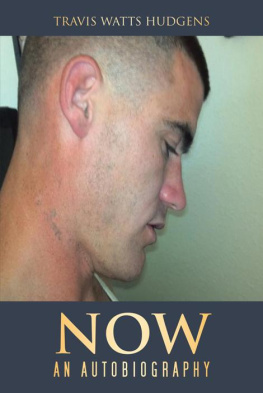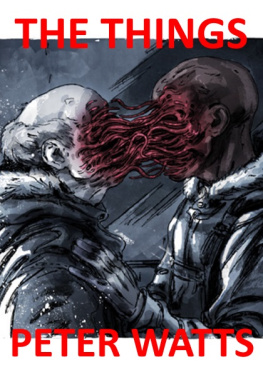Christopher Lee Watts was born in Fayetteville, North Carolina, on May 16, 1985, the second child of Ronnie and Cindy Watts. His sister, Jamie, was six and a half years older and helped raise him. Ronnie worked as a parts manager for a Ford dealership, while Cindy was a secretary and notary.
From an early age, Chris idolized his father, who was quiet and reserved.
Ronnie and Chris were so close, said Cindy. They did everything together.
Chris loved sports, and his father would take him to basketball games in the winter and football and baseball ones in the summer.
They also shared a love of NASCAR and went to more than two hundred races together, including the Daytona 500. Ronnie also taught his son car mechanics, which Chris discovered a natural talent for.
Unlike his gregarious older sister, Jamie, who took after her mother, Chris was shy and withdrawn like his dad. When he started school, he was an average student but shone at sports, winning many trophies, which his parents still proudly display in their living room. His father would always come to watch him compete in school sports, cheering him on from the sidelines.
Chris was also close to his maternal grandmother, Gertrude Schottner McLeod. She would quiz him on state capitals while they waited outside Pine Forest Middle School to pick up Jamie.
He knew all the capitals of the United States and was learning the capitals of Europe, said Cindy. It was just something they did to pass the time.
* * *
At fourteen, Chris followed his parents and sister to Pine Forest High School, where he became even more withdrawn. He kept to himself and was uncomfortable around his schoolmates, who largely ignored him.
He didnt go out with friends, said his sister, Jamie. I was more of a social butterfly, and he was quiet and interested in mechanics and cars. He was just a focused person.
Chris enrolled in the Automotive Technology class taught by Joe Duty and soon became one of his star pupils. Duty was something of a mentor to Chris, believing he was destined for great things.
Its hard to find a more perfect kid, said Duty. He was in the top ten percent of students I ever had. He was very quiet [and] introverted, but he was always completely polite and courteous.
The gangly tall teenager with braces and a bowl cut impressed his teacher with his encyclopedic knowledge of NASCAR stats and trivia. He was obsessed with the sport and would spend hours in his bedroom reading about it.
He had a photographic memory, recalled Duty, and he could recite anything you wanted to know about NASCAR from memory... right off the top of his head. And I was very impressed with that.
Duty was also struck by how isolated Chris was and never saw him speak to a girl, let alone have a girlfriend. Ironically, many girls at the school had crushes on the handsome teenager, who was too awkward and shy to do anything about it.
That was one thing I always wondered about, Duty recalled. Many times I would look at him and think, Whats going on in his head? It was like the wheels were spinning but he was by himself.
One girl Chris did become close to in high school was Brandi Smith, who remembers him being smart and gentle.
She said, Most of our conversations that I recall were about music and things like that. I was a bit of an outcast and he kinda just seemed to understand me.
Lance Alfonso played football with Chris and remembers him being almost too easygoing.
Ive never seen him get angry at anybody, he recalled. [He] wouldnt hurt a fly.
In the 2002 Pine Forest High School yearbook, Chris appears in a group shot of Academy of Applied Technology students. He is also in a Patriots Day photo spread, taken on the first anniversary of the World Trade Center 9/11 attacks.
On another yearbook page entitled Life in the Fast Line, Chris was asked whether American cars were better than foreign ones.
American sports cars, says Chris, because Fords are made in America.
Joe Duty remembers Chris driving a Ford Mustang his father had bought him and helped him fix up.
Unlike his older sister, Chris never rebelled as a teenager or caused any trouble. But as he grew up, Jamie often wondered if something was wrong with Chris, as he was so obsessive and controlled.
I really thought he was autistic, said Jamie, like he was on the spectrum. He had to get things in order... from the way he would eat to the way he had to say his prayers at night. It was his mannerisms. It was hard to hold a conversation with him unless we were talking about cars.
* * *
On March 18, 2003, Joe Duty brought seventeen-year-old Chris Watts and another student to Winston-Salem, to compete in a North Carolina Statewide Automotive Competition. They had spent months training for the prestigious competition.
The Fayetteville Observer had featured Chris in a story headlined Auto Tech Students Compete for Garage Glory.
When Pine Forest High School senior Chris Watts... lifts the hood of a Toyota Matrix next week, read the article, [he] will find an assortment of problems. Their teacher, Joe Duty, can only stand on the sidelines and watch. If he gives any help, the team will be disqualified.
Alongside the article was a photograph of Chris working on a car engine, and he was also interviewed.
When I was a kid, I watched car shows and went to races, he told the reporter, adding that his dream car would be a 69 Boss 429 Mustang.
Its not just a paper test, Duty said. They get to compete. They have to perform. It tells you whether you can do the job.
But unfortunately, at the competition the Pine Forest team placed a disappointing third out of the four teams competing.
At the end of May 2003, Chris Watts graduated from Pine Forest High School. The yearbook has a color picture of him wearing a tuxedo and black bow tie, an enigmatic knowing look in his eyes. A female admirer had to invite him to the prom, as he was too shy to ask.
Before graduation, Joe Duty gave his star pupil a pep talk. Chris had just been awarded a $1,000 scholarship to the NASCAR Technical Institute in Mooresville, North Carolina, and his auto teacher was convinced that he would go far.
He had everything going for him, said Duty. I told him, Chris, if ever I had a student who was going to be tremendously successful, its you. I was sure that one day I was going to read about him [being] a crew chief of a NASCAR team.
* * *
In the summer of 2003, eighteen-year-old Chris Watts left home for the NASCAR Technical Institute in Mooresville, North Carolina. Lying 120 miles west of Fayetteville, the Charlotte suburb was his first taste of city life.
We paid his rent until he got on his feet, said his mother, because he had to go to school five days a week. We would help him out with his groceries, pay his car insurance and all of this stuff.
To supplement his income, Chris found a part-time job at a Ford dealership in Mooresville, renting an apartment with another NASCAR student named Richard Hodges.
He was straight as an arrow, recalled Hodges. He was very dedicated to his work... and wasnt the kind of guy that went out and partied.
While most of his classmates were out every night drinking, Chris studied in his bedroom. He dreamed of a career in NASCAR and devoted himself to achieving it.
He was pretty reserved, said Hodges, and not the kind of guy whos just going to walk up and introduce himself and try and make friends.
* * *
Around the same time that Chris left home, his sister, Jamie, got married and also moved out. Now studying and working a part-time job, Chris rarely came home. Ronnie, who had once been so close to his son, seemed to fall apart.
I never came back, Chris later explained, and I think that hit [my dad] pretty hard. He was used to me being around. Hes my hero. Hes my best friend.

















